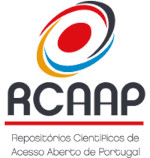Scrum Framework in scientific research
a possible dialogue in the supervisor-supervisee relationship
DOI:
https://doi.org/10.24208/rebecin.v12.379Keywords:
Scrum, agile methodologies, project management, academic projects, scientific researchAbstract
Agile methodologies are interactive, incremental and adaptive processes and practices arising from software development that emerged to solve problems from sequential and monolithic approaches. With the evolution of the agile model and its application in different projects, this proposal can contribute to students and teachers who are looking for ways to optimize academic production - especially in a scenario where quality scientific publications are required in a limited time, which still needs be segmented with other professional and personal activities. The objective of this work is to report the experience with adapting the Scrum framework, based on agile principles, to the academic context, specifically in writing a dissertation or thesis. This research is characterized as descriptive, exploratory and applied, with a qualitative approach, using bibliographical research techniques and direct observation. As results, Scrum roles, artifacts and events were presented, correlating them with their counterparts in academic research projects. The Scrum framework does not present a rigid and immutable structure, but rather a model with basic principles that should guide the process as a whole. Consequently, it is not a step-by-step methodology that is installed suddenly. It is a change of mentality, of culture, that needs to be embraced and incorporated by the executors for it to work. It is concluded that it is useful to use the framework in different contexts, as it has the capacity to expand the results of academic production, as long as one knows its application principles well, and is committed to following them.
Downloads
References
AGILE ALLIANCE. Agile Manifesto. 2023. Disponível em: https://agilemanifesto.org/. Acesso em: 22 nov. 2023.
OLIVEIRA JÚNIOR, Osvaldo N. A técnica da escrita científica. Revista Brasileira de Ensino de Ensino de Fìsica. v. 37, n. 2, 2015. Disponível em: https://www.scielo.br/j/rbef/a/VsMNNbVGBzRkSwHQgKVF3cr/#. Acesso em: 18. nov. 2023.
MUSSI, Ricardo Franklin de Freitas; FLORES, Fábio Fernandes; ALMEIDA, Claudio Bispo de. Pressupostos para a elaboração de relato de experiência como conhecimento científico. Práx. Educ., Vitória da Conquista , v. 17, n. 48, p. 60-77, out. 2021. Disponível em: <http://educa.fcc.org.br/scielo.php?script=sci_arttext&pid=S2178-26792021000500060&lng=pt&nrm=iso>. Acesso em: 18 nov. 2023.
PRESSMAN, Roger. S. Engenharia de software. 6. Ed. São Paulo: Makron Books, 2006.
PRODANOV, Cleber Cristiano; FREITAS, Ernani Cesar de. Metodologia do trabalho científico: Métodos e técnicas da pesquisa e do trabalho acadêmico. 2 ed. Novo Hamburgo: Feevale, 2013. 276 p. Disponível em: <https://www.feevale.br/institucional/editora-feevale/metodologia-do-trabalho-cientifico---2-edicao>. Acesso em: 22 nov. 2023.
RODRIGUES, Rosângela Schwarz; NEUBERT, Patricia da Silva. Introdução à pesquisa bibliográfica. Florianópolis: Editora da UFSC, 2023. 137 p. Disponível em: https://doi.org/10.5007/978-65-5805-082-7. Acesso em: 28 nov. 2023.
SCRUM GUIDES. Scrum Guides. 2023. Disponível: https://scrumguides.org/. Acesso em: 22 nov. 2023.
VALENTE, Marco Tulio. Engenharia de Software Moderna: Princípios e Práticas para Desenvolvimento de Software com Produtividade, Editora: Independente, 395 páginas, 2020.
Downloads
Published
How to Cite
Issue
Section
License
Copyright (c) 2025 Danielle Teixeira de Oliveira, Patrícia Nascimento Silva

This work is licensed under a Creative Commons Attribution 4.0 International License.
A REBECIN adota a licença Creative Commons CC-BY 4.0 (https://creativecommons.org/licenses/by/4.0/deed.pt_BR) , a qual permite:
- Compartilhar— copiar e redistribuir o material em qualquer suporte ou formato
- Adaptar— remixar, transformar, e criar a partir do material para qualquer fim, mesmo que comercial.
A REBECIN considera que o autor detém o direito autoral sobre sua produção, porém o autor deve concordar em ceder à revista o direito à primeira publicação. Além disso, o autor deve concordar que:
- em quaisquer publicações em repositórios institucionais, capítulos de livro ou outras produções decorrentes de trabalhos publicados na REBECIN, devem ser dados os devidos créditos à publicação inicial.
- estão autorizados a publicar e distribuir seu trabalho online (ex.: em repositórios institucionais ou na sua página pessoal) a qualquer momento antes ou durante o processo editorial, já que isso pode gerar alterações produtivas, bem como aumentar o impacto e a citação do trabalho publicado pela REBECIN.












 Licenciada por
Licenciada por 